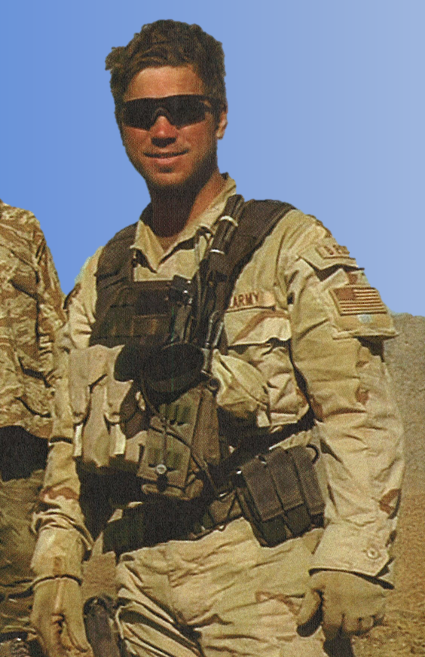Could your hands save a life? Americans are woefully unprepared to respond to emergencies.
“The best place to find a helping hand is at the end of your arm.”
Growing up, whenever we were faced with a challenge, my father used to repeat that old idiom, reminding us that we were perfectly capable of helping ourselves, and those around us.
We might have brushed off those words then, but they proved to be remarkably pertinent later in my life as a combat medic for the U.S. Army Special Forces. Through deployments to 30 countries, and four tours of Iraq and Afghanistan, I came to realize that a helping hand was a well-trained one – and having it at the end of your arm was the single best way to ensure lives weren’t needlessly lost to traumatic injury on the battlefield.
Today, back at home as a civilian, I still see the world through the eyes of a combat medic. And – with vehicle accidents, severe weather events, unexpected acts of violence and more – the unfortunate reality in America today is that more and more people are bystanders to traumatic injuries.
The clock is ticking
There are more than 16,000 deaths every single day due to traumatic injury, which require immediate medical attention, around the world. In the United States, unintentional injury is the third leading cause of death, and the No. 1 cause of death for Americans under the age of 45, according to the Centers for Disease Control and Prevention.

We live in a world where “initial responders" arrive long before trained first responders can make the difference between lives saved and lives lost – and just how quickly lives can be lost once the injury occurs is startling. All it takes is five minutes of hemorrhaging after a traumatic injury and a person can bleed to death. When seconds can separate life from death, initial responders don’t have time to wait on someone else’s helping hand.
It’s particularly frustrating for me – and any EMT or combat medic in the country – to witness lives needlessly lost, knowing how relatively simple it is to perform basic lifesaving tasks like CPR or applying pressure to the site of a bleeding. Ordinary people can act and make a real difference when emergency strikes.
The United States has a shortage of both professionally trained hands and volunteer emergency services, and as a consequence, far too many preventable deaths. Despite the outsize need for both pre-hospital care training and equipment in the United States – something we’re sadly reminded of in the wake of every mass shooting – the country is falling behind our friends overseas.
Post-pandemic: Emily's life began the day California opened up again. Life after COVID looks pretty great.
In Germany, regulations require drivers to store a first-aid kit in their car. More than that, they are required to undergo a first-aid kit inspection when they bring their cars in for an emissions tuneup.
In the United Kingdom, where knife attacks are increasingly common, bleed-stop kits are strategically placed around the country, including in bars and late-night spots.
Many young men and women in Israel, where military service is compulsory, are so highly trained in trauma care that officials can toss a first-aid kit into a crowd in the event of a traumatic injury and trust that any number of helping hands will catch it.
In these places, civilians aren’t necessarily more highly educated in formal medicine, nor are they armed with more complex equipment. They just recognize the vital importance of basic lifesaving knowledge and easy-to-use treatments in the hands of many. The solution is to have more prepared locations and a more prepared population trained with the basic fundamentals of saving lives.
Are we prepared?
Here in the United States, the public’s state of preparedness lags woefully behind.
A majority of people in a recent American College of Emergency Physicians poll said they are not confident in their ability to offer assistance in the event of a mass shooting (68%); a single gunshot victim (62%); someone nearby stops breathing (52%); or someone is severely bleeding (50%).
People are held back by a lack of basic knowledge or a fear of doing more harm. The only cure for this – and the resulting epidemic of traumatic injuries leading to preventable deaths in America – is widening the availability of simplified emergency medical products and increasing the number of individuals with an elementary level understanding of basic emergency medical skills.
Bishops and Biden: US Catholics need a crash course in Church teaching on Communion. Biden gave an opening.
After I reentered civilian life, I co-founded an emergency medical products and training company to make saving lives easier. The public needs simplified first-aid kits that have reasonable capabilities for serious injuries. These kits should have color-coded treatments, with corresponding easy-to-follow instructions. This helps the initial responders, ordinary people, focus on first steps of lifesaving. These kits should be commonplace in public buildings, workplaces, schools, and commercial and passenger vehicles across the country.

Perhaps most important, we need to instill ordinary citizens of every age with the confidence that they can act when an emergency strikes.
America must transform bystanders into “by-doers." With real, forward-looking policies in place, enough Americans will finally be able to look at the end of their own arm and find a hand they know can save a life.
Corey Russ is president of Safeguard Medical, an emergency medical training and technologies company, and a former combat medic for the U.S. Army Special Forces.
You can read diverse opinions from our Board of Contributors and other writers on the Opinion front page, on Twitter @usatodayopinion and in our daily Opinion newsletter. To respond to a column, submit a comment to letters@usatoday.com.
This article originally appeared on USA TODAY: Accidental injuries are deadly. Are you able to help in emergencies?

